Case studies and presentationsPoster
Poster will be on display in the Thinking Space for the duration of the conference.
Time
Thursday 23 February
3:30pm
Location
Boardroom
Speaker
Adam Selinger
Co-founder and Creative Director
Abstract
Children’s Discovery Museum (CDM) was established in 2001.
CDM’s rationale was based on the considerable research that showed that early childhood experiences form a particularly critical foundation for all future science learning. The research also showed that disadvantaged children have higher rates of participation in out-of-school learning programs.
CDM’s aim was to foster creativity, critical thinking, cooperation and innovation with a particular focus on science literacy.
CDM’s approach was to improve children’s development through encouraging their active participation in play-based educational experiences.
CDM’s approach challenges the assumption that school is the best if not only place where and when children learn science. This assumption is challenged by studies showing that schooling may take up a mere 5% of our learning ecosystem.
We argue that out-of-school programs need not be academically focused in order to have academic impact. Evidence shows that in-formal, play-oriented mediums encourage children to interact with each other, their accompanying adults and objects surrounding them in ways that significantly support the development of science inquiry skills.
Our case study demonstrates that public libraries are effective and well located centres for informal STEM learning. Thus the opportunity is for libraries and librarians is to now offer high quality STEM programs for communities across Australia and, importantly, to be set up to sustain these programs.
Libraries are an existing community resource that stand out as trusted and accessible to all members of the community regardless of economic-social-cultural background.
We now firmly believe they are the single most important grass-roots community portal that can and should provide access to current science knowledge and debate. They are also in the prime position to support the development of 21st century skills in the upcoming generation.
The Little Bang Discovery Club is aimed at children aged 3 to 5 accompanied by adult(s). It is hosted by public libraries and (generally) provides four, one-hour sessions.
Each child receives a Discovery Box containing age-appropriate tools and materials, which they can use at home between weekly sessions. During the program other relevant items from the library collection are showcased, along with books.
Programs for older children (6 to 8, 9 to 12 years) and loanable STEM equipment is also discussed.
References
Baek, J.Y. (2013) Public Libraries as Places for STEM Learning: An Exploratory Interview Study with Eight Librarians. National Center for Interactive Learning Education/Research Report.
Baek, J.Y. (2013) The Accidental STEM Librarian: An Exploratory Interview Study with Eight Librarians. National Center for Interactive Learning Education/Research Report.
Dusenbery, P.B. (2014). The STEM Education Movement in Public Libraries. Informal Learning Review No. 124 January/February 2014
Falk, J.H. and Dierking, L.D (2010) The 95 Percent Solution: School is not where most Americans learn most of their science. American Scientist, Volume 98, pps 486-492.
Falk, J.H. (2002). The Contribution of Free-Choice Learning to Public Understanding of Science. Intercencia Feb 2002 Vol 27 No2 pp 62-65
STARnet Webinar Series (Nov 16th 2016) Promising Practices for Implementing STEM in Public Libraries.
Defining Youth Outcomes for STEM Learning in Afterschool (2013). Afterschool Alliance.
Science Literacy Concepts, Contexts, and Consequences. Board on Science Education (BOSE) based on the report Science Literacy: Concepts, Contexts, and Consequences (2016). National Academy of Sciences.







Leave a Reply